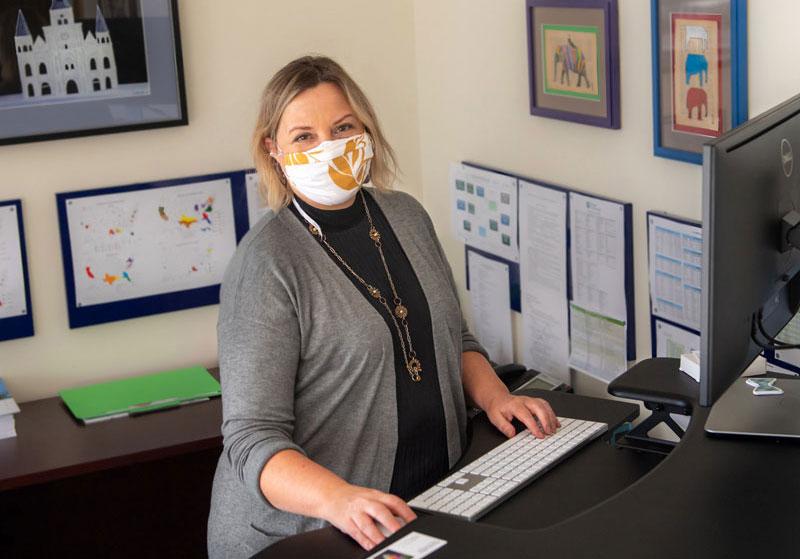
Sharon Courtney is vice president for Government and Community Relations. Her office is the university’s liaison with the federal, state and city government as well as with higher education associations and the New Orleans community at large. She spoke on how Tulane’s robust COVID-19 testing program, run by the School of Medicine, serves not just the university’s faculty, staff and students, but the city as well.
How does Tulane’s testing benefit the New Orleans community?
It benefits the community in a couple of ways. Our students are part of the community and knowing their infection status is crucial to reducing community spread. As I understand it, only about 6% of colleges are doing surveillance testing (testing asymptomatic individuals regularly) and the CDC has recently recommended that schools do surveillance testing, so what we’re doing is critically important to the Tulane community, allowing for in-person learning, and the larger New Orleans community. The second piece is we're also testing our employees. By that I mean faculty, staff and contract workers. Those are members of the community who live in our city full-time, as do many of our students. So that's a burden we're taking off the city's testing program — testing the people who work for the largest employer in Orleans Parish – that's not insignificant.
Where else does the School of Medicine conduct testing?
We’re also continuing to do testing at various other community sites, whether it be the nursing homes or the state hospital in Jackson, Louisiana, or Orleans Parish Prison or for first responders. We continue to do that testing as well. We’re also talking to the New Orleans Public Schools about how we might assist them with their testing program.
What are the advantages to Tulane having its own testing program?
There are a couple. One is our 24-to-36-hour turnaround. The other is the fact that we are doing PCR (polymerase chain reaction) testing, which is considered the gold standard for testing. People generally want PCR testing, and while we’re hopeful for new, easier and less expensive tests to come along, we still want it to be in the same range of accuracy as the PCR test. In addition, the state and city don’t have the capacity to do the type of testing we’ve decided is necessary to protect our students and community.
What was the city of New Orleans’ reaction to Tulane’s return to campus?
We’ve been in very close contact with the city of New Orleans from the beginning of the plan, and I think that Mayor LaToya Cantrell knew it was important for Tulane to reopen in person, important for us and important for the city, in the sense of the economics of it. They also felt comfortable with the plan we were presenting to them. We have kept the city informed every step of the way.
Is there any evidence that Tulane students are spreading the virus in the city?
We have experts reviewing our (COVID case) numbers, and based on our numbers and the city's numbers, there is no evidence currently to support any spread outside of the university. That is something that we have worked very hard on with our students in terms of doing the things that they need to do off campus, which is masking and social distancing. Those are the things that only they can control, and, to date, they’ve largely been doing a great job. And we've been really proud of our students. I think the longer this goes on, the harder it gets for everybody, but people are cooperating well.
Interview by Carolyn Scofield

